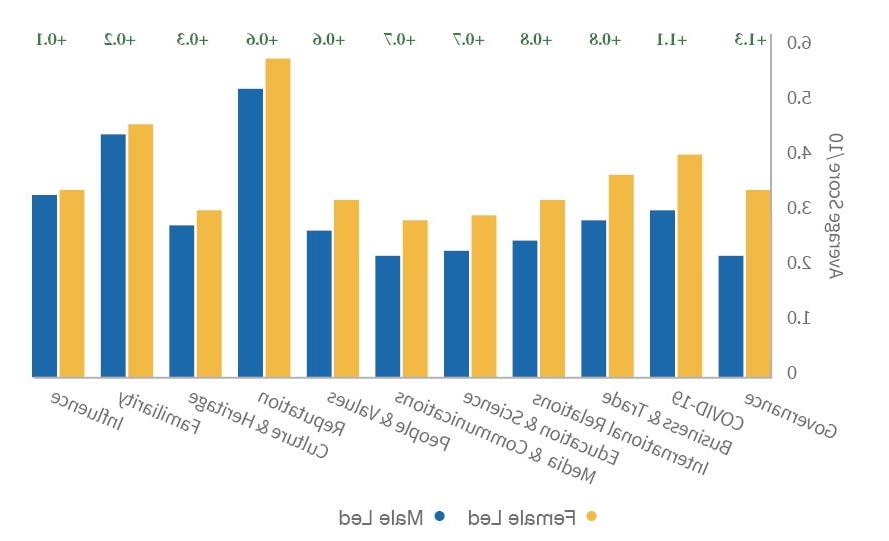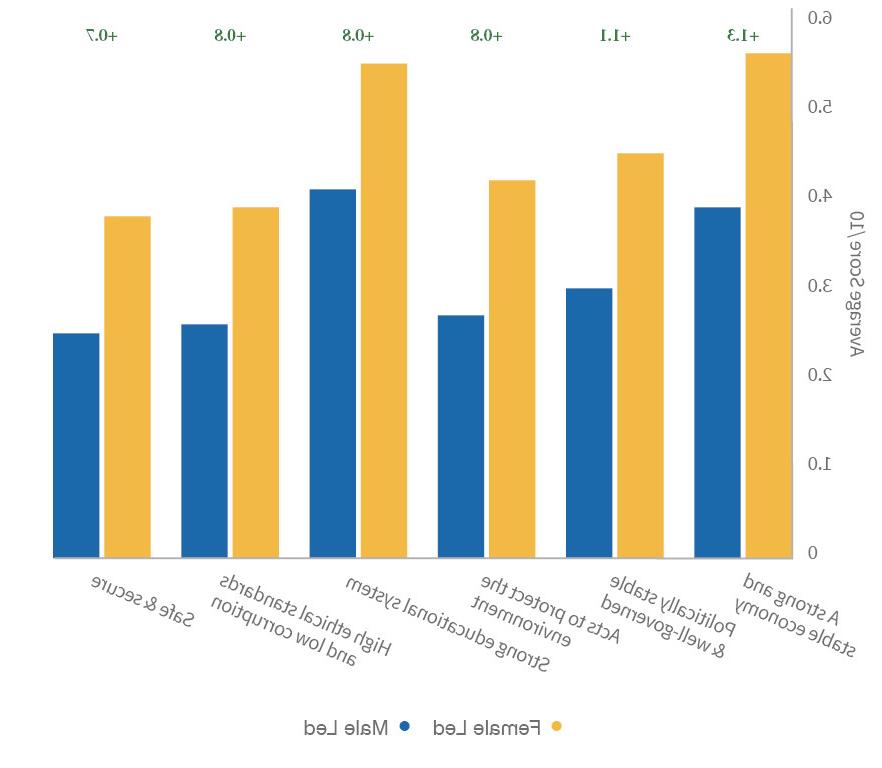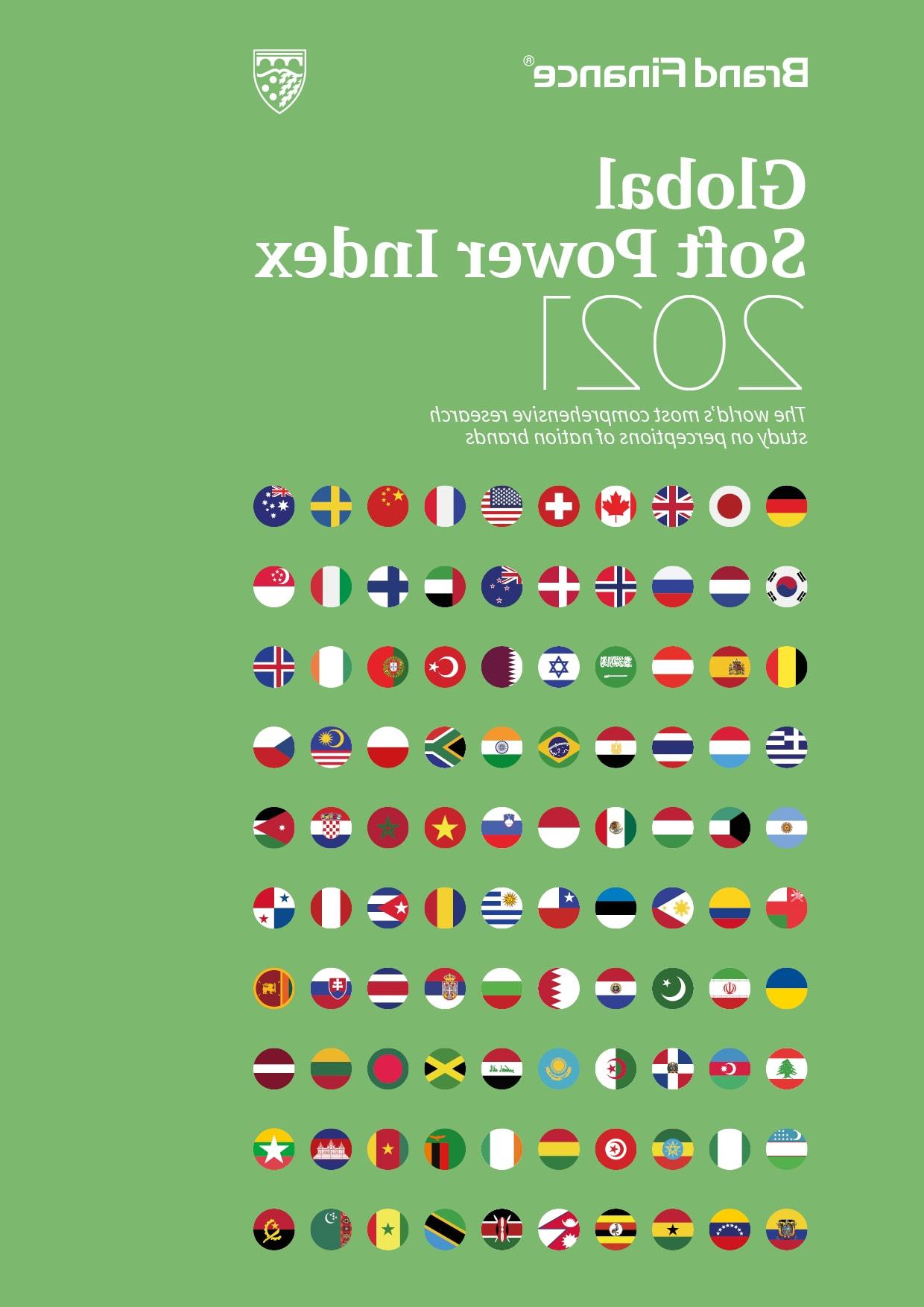Muita coisa foi escrita sobre como as líderes femininas conseguiram a pandemia melhor do que seus colegas masculinos. Percebendo que a maioria dos artigos era anedótica e, dada a nossa extensa Banco de dados global do índice de potência soft power, durante 2020, decidimos responder se a liderança feminina tivesse um impacto positivo no poder suave das nações.
Nossa análise mostrou que as nações lideradas pelas fêmeas superam, em média, suas contrapartes lideradas por homens em todas as 11 métricas cobertas pelo índice global de energia mole, com a liderança mais significativa para a governança, a diferença de fêmeas, as Nações e as Relações Internacionais e as Nações de Comércio e as Nações Maciais. As 34 declarações que o público público em geral foram questionadas sobre as nações lideradas por mulheres se destacam em todas as métricas, exceto três. As nações lideradas por mulheres têm a liderança mais significativa nas medidas relacionadas à segurança, segurança e estabilidade. Atributos que as nações lideradas por homens pontuam melhor do que as nações lideradas por mulheres são influentes em artes e entretenimento, comida que o mundo ama e percepções de serem divertidas-todos os fatores indiscutivelmente que são impulsionados pela cultura de longa data do país, em vez de governança e liderança. Os líderes foram elogiados por sua liderança estável e abordagem empática com Angela Merkel e Jacinda Ardern também navegando em suas nações como a melhor percebida no manuseio de covid-19 entre os especialistas e os públicos em geral, respectivamente, respectivamente. Se analisarmos mais de perto, podemos ver que a maioria dessas variáveis está relacionada a atributos nos quais as mulheres são consideradas se destacando pelos líderes políticos.

Looking at a more granular level, of the 34 statements that the General public audiences were asked about, female-led nations excel in all but three metrics. Female-led nations have the most significant lead on measures that relate to safety, security, and stability. Attributes that male-led nations score better than female-led nations are influential in arts and entertainment, food the world loves, and perceptions of being fun - all arguably factors that are driven by the nation’s longstanding culture rather than governance and leadership.

During a year of disruption, chaos, and uncertainty, notably, a select few female leaders have been commended for their stable leadership and empathic approach with Angela Merkel and Jacinda Ardern also navigating their nations to be the best perceived at their handling of COVID-19 among the specialists and general public audiences, respectively.
The attributes that female-led nations most significantly outperform male-led nations on are widely regarded as attributes that lead to long-term success. If we take a closer look, we can see that most of these variables are related to attributes in which women are considered to excel by political leaders.
According to Dee Dee Myers (2009), former White House Press Secretary, political leaders, and voters consider that women leaders excel at “caretaking skills”, “team-building”, and “motivating others”, and they “tend to be more pragmatic and results-oriented (…) less consumed by the constant who´s-up-and-who´s-down scorekeeping aspect of the political jogo. ” 1 Mulheres se concentram menos nas mudanças da popularidade de curto prazo e mais no final do jogo. As características parecem ser particularmente eficazes na liderança durante uma crise. Zenger e Folkman (2020) explicam que as mulheres líderes enfrentam um "penhasco de vidro" quando estão avançando em direção aos níveis mais altos de uma organização: "Quando uma empresa está com problemas, uma líder feminina é responsabilizada para salvá -lo". Estas são as características que são mais frequentemente exibidas pelas mulheres. Como Kofi Annan disse: “Por gerações, as mulheres serviram como educadores de paz, tanto em suas famílias quanto em suas sociedades. Elas se mostraram instrumentais na construção de pontes em vez de paredes.”
This long-term orientation, together with their ability to compromise, listen, and work across party lines, are key to lead effectively in the current situation in which polarization, partisanship, and divisive narratives are stalling progress.
These gender traits seem to be particularly effective in leadership during a crisis. Zenger and Folkman (2020) explain that women leaders face a “glass cliff” when they are advancing towards the highest levels of an organisation: “when a company is in trouble, a female leader is put in charge to save it.”2 According to these researchers, during a crisis, we look at leaders that show honesty, integrity, adaptability, security, collaboration, and empathy. These are the traits that are more often being displayed by women. As Kofi Annan put it, “for generations, women have served as peace educators, both in their families and in their societies. They have proved instrumental in building bridges rather than walls.”
This unifying drive, together with the transformational leadership style that is associated with women leaders, provides both the strength and flexibility that are required to thrive in extremely volatile and uncertain contexts and is evidenced in this year’s ÍNDICE GLOBAL DE POWER SOFT Pesquisa como público em geral e especialistas em diferentes campos estão reconhecendo isso.
